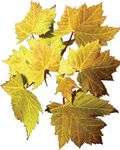Université du Québec Largest University Network in Canada - Université du Québec
←
→
Transcription du contenu de la page
Si votre navigateur ne rend pas la page correctement, lisez s'il vous plaît le contenu de la page ci-dessous
Université
du Québec
Largest University Network
in Canada
Created by the Government of An Imposing Presence
Québec in 1968, the Université du
Québec is the largest university To fulfill its mission, Université du Québec boasts a network of 9 establishments
network in Canada. Its mission is to across the province:
facilitate access to university edu- Université du Québec à Montréal (UQAM),
cation, contribute to the scientific along with TÉLUQ (an online university specializing in distance education);
development of Québec as well as to Université du Québec à Trois-Rivières (UQTR);
regional development. Université du Québec à Chicoutimi (UQAC);
From its headquarters in Québec Université du Québec à Rimouski (UQAR);
City, Université du Québec coordi- Université du Québec en Outaouais (UQO);
nates courses taught by nearly 6,000 Université du Québec en Abitibi-Témiscamingue (UQAT);
professors and their assistants, to
Institut national de la recherche scientifique (INRS)
86,000 students in its 9 establish- (National Science Research Institute);
ments in 54 cities across the
École nationale d’administration publique (ÉNAP)
province. As the youngest uni- (National School of Public Administration);
versity in Québec, Université du
École de technologie supérieure (ÉTS)
Québec has established an identity
(a school for higher technology).
based on innovation and challenge,
quality of teaching and openness to
the world at large.
CANADA QUÉBEC
www.uquebec.caOpen to the
World at Large
Due to the superior quality of its
teaching and research, the various
establishments within the university
network offer world-class education.
The “ mobility program ” gives stu-
dents the flexibility to study at any of
the university establishments within
its Québec network. The university’s
faculty members have established part-
nerships in Asia, Europe, the Ameri-
cas and Africa, through which the
institution remains at the forefront of
developments in world-wide research.
Out of 86,000 students enrolled at
Université du Québec, 5,000 come
from abroad.
On the Cutting Edge of Research
In 2005, the Université du Québec Through a multidisciplinary approach,
ranked 11 among Canadian universi-
th
the Université du Québec wishes to
ties respecting its research revenues, ensure the integrated development
which amounted to over 196 million of society and encourages consensus
dollars. on crucial issues, such as accessibility
to academic success.
Though young, the Université du Qué-
bec has developed expertise in various
human and social sciences, health sci-
ences, natural sciences and engineer-
ing. In fact, researchers from its various
establishments have distinguished them-
For those students who need to bal- selves in areas of alternative energy, ma-
ance work, family and studies and rine sciences, neurosciences, cognitive
who cannot attend courses in person, sciences, environmental studies, forest
Université du Québec offers a distance ecology, water, mining, athletic drug
UQO
education program through TÉLUQ, testing, international studies, manage-
which is linked to UQAM. Together, ment, new economy, cold engineering,
these two entities form the largest territorial development, optics, nano-
French-speaking university, combin- biotechnologies as well as social health
ing on- and off-campus education. issues.
They fulfill their mission of educa-
tion, research and creation whether
on campus, in the regional centres
or by means of distance education
programs, both in Québec and on the
international scene.The Strength of a Network:
Large-scale Activities
Taking advantage of the strength of its network, the Université du Québec has set up large-scale activities, selected
from among its many teaching and research facilities throughout Québec. Through these strategic partnerships, its
leaders and researchers have combined their efforts and resources to forge a university that’s at the cutting edge of
education, research and technology. The Université du Québec is currently focused on developing the following:
FORESTRY WATER
Surrounded by immense forests, the Fresh Water
Province of Québec has taken advantage About 10% of Québec’s territory con-
of this natural resource and developed sists of water, representing 4,500 rivers,
an internationally recognized expertise in half a million lakes, and 430 major
pulp and paper, forest regeneration and catchment areas. With such a bountiful
forest ecology. When it comes to for- resource, establishments of the Université
estry, the Université du Québec network du Québec network have become
supports the ecosystems approach and experts in this field, ranking them
counts on the expertise of: among the world leaders in water
• Centre multirégional de recherche research. The following groups were
en foresterie (a multiregional forestry established by Université du Québec
research centre); researchers:
• Groupe de recherche en écologie • Centre INRS-Eau, Terre et
forestière interuniversitaire (an inter- Environnement (earth, water and
university forest ecology research environment centre of Québec’s
group); scientific research institute);
• Consortium de recherche sur la forêt • Groupe de recherche interuniversitaire
boréale commerciale de l’UQAC (a Marine Environment
en limnologie (interuniversity
consoritum for boreal, commercial limnology research group); Researchers of the Université du Québec
forest research at UQAC); network have also developed broad
• Groupe – Développement et
• Centre de recherche en pâtes et expertise in the marine environment
recherche appliquée en modélisation
papier de l’UQTR (the pulp and through:
de l’eau et de l’environnement
paper research centre at UQTR); • Institut des sciences de la mer de
(a group for applied research
• NSERC Industrial Chair in Sustainable and development in water and Rimouski (the marine science institute
Forest Management at UQAT & UQAM; environment modelling); at Rimouski);
• Unité de recherche et de • Institut des sciences de • Groupe de recherche en géochimie
développement forestiers de l’environnement de l’UQAM (the et en géodynamique (a geochemistry
l’Abitibi-Témiscamingue (the Abitibi- environmental science institute of and geodynamics research group).
Témiscamingue forestry research and UQAM). Research is geared to gaining a better
development unit);
Their expertise pertains to hydrology, understanding of major environmental
• Institut québécois d’aménagement
ground water, water quality, envi- issues in the marine sciences.
de la forêt feuillue relié de l’UQO
ronmental danger, climatic change,
(a Québec institute for deciduous
infrastructure, management and gover-
forest management, linked to UQO).
nance, water sanitation and treatment,
As well, groups from the Université ecosystems.
du Québec have access to numerous
forests and forested areas for the pur-
poses of teaching and research, allow-
ing them to conduct practical analyses
of different concepts and ideas.Territorial Development
Territorial development, a big field of study within the Université du Québec, aims at
developing relationships between various establishments so that their regions may mutually
benefit from technological, cultural and economic transfer. The main groups involved are:
• Réseau interuniversitaire d’études • Observatoire jeunes et société (an
urbaines et régionales – villes, régions, observatory for youth and society);
monde (an inter-university network • Institut de recherche sur les petites
for urban and regional studies – cities, et moyennes enterprises (a research
regions, world); institute of the small and medium size
• Centre de recherche sur le enterprises);
développement territorial (a centre for • Centre multirégional de recherche en
research on territorial development); foresterie (a multiregional centre for
• Centre Urbanisation, Culture et Société research in forestry);
de l’INRS (a centre for urbanization, • Centre INRS-Eau, Terre et
culture and society of INRS); Environnement (INRS centre for water,
• ÉNAP (National school of public earth and environment);
admistration); • Institut des sciences de
• Centre de recherche sur les innovations l’environnement (the provincial
sociales (social innovations research institute for environmental sciences);
centre) and the Alliance de recherche • The OURANOS group. distance Education
en économie sociale (an group for Themes featured deal with society, From its very beginning, the Univer-
research on social economics); economy, politics, environment, sité du Québec has been a pioneer
• Alliance de recherche sur les resources, geography, territory, culture, in the area of distance education
innovations sociales (a group for and sustainable development. thanks to TÉLUQ. Thus, students
research on social innovations);
needing to balance studies work
and family, can access university
education in French whether within
a regular program or to upgrade
their studies. In an effort to
diversify its offerings in this area, a
recent agreement has linked TÉLUQ
to UQAM. TÉLUQ’s mandate is now
yves tessier
to offer UQAM’s distance education
programs, but also to support the
development of the open university
Student Mobility of the network’s establishments and within the Université du Québec
to study at another, without incurring network.
In an era of market globalization,
additional fees or slowing down their
students need adaptability and open-
study program. They may thus take
mindedness in order to excel. Thus, the
advantage of programs suited
Université du Québec puts great
to their needs and have access
importance on student mobility.
to top resources, wherever
Due to its spread-out network,
they are located. While the
the institution has created
mobility program is currently
MOBILUQ, a program 475, rue du Parvis
available within Québec, the
specifically designed for Québec (Québec) G1K 9H7, Canada
University has planned a Phone: (418) 657-3551
academic mobility. Through
Fax: (418) 657-2132
world-wide launch in the near
this program, students E-mail: communications@uquebec.ca
future.
febuary 2007
are able to register at one Web site: www.uquebec.caVous pouvez aussi lire

























































